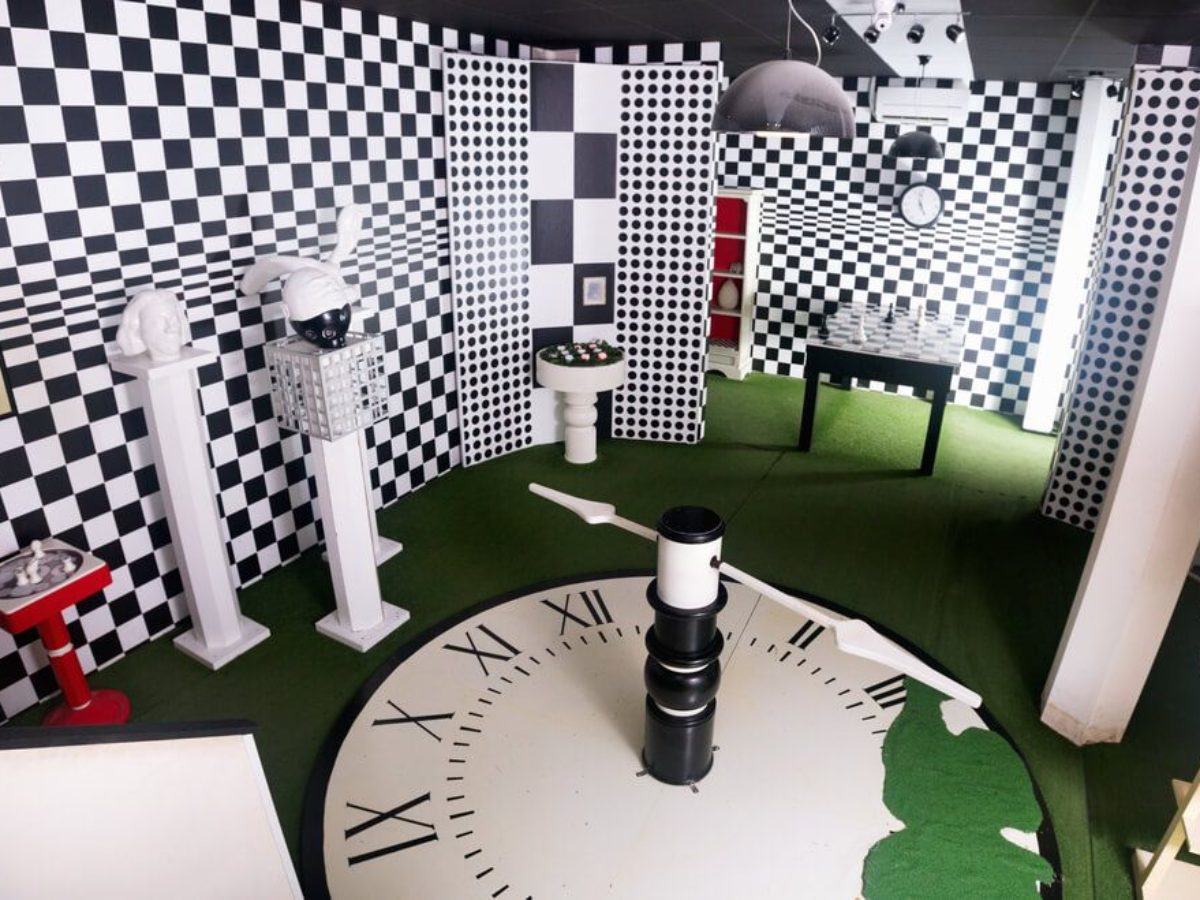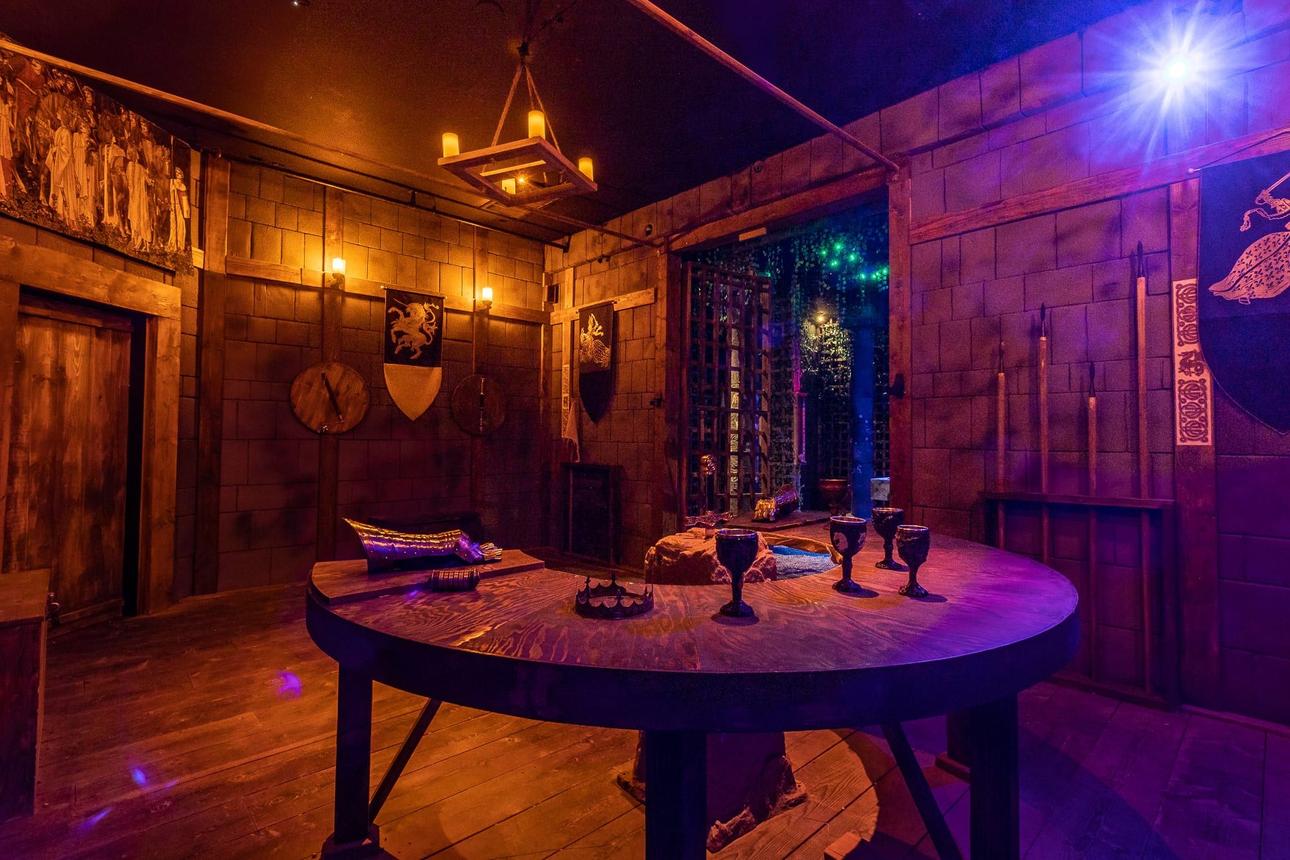Team Strategies: How to Team up Efficiently in a Retreat Space
Navigating the complexities of an escape room demands greater than simple enthusiasm; it requires a well-coordinated approach based in clear interaction, tactical role tasks, and skilled time administration. Teams have to actively pay attention per member's insights, assign functions that straighten with private strengths, and maintain regular check-ins to make sure focus and stop redundancy. By promoting an environment that values communication and versatility, teams can dramatically enhance their effectiveness and success rates. The subtleties of these methods can transform the experience, yet exactly how exactly can they be applied to take full advantage of the potential for success?
Establish Clear Communication

To facilitate clear interaction, it is crucial to mark a central factor of call for information dissemination. Quick, concentrated updates from each team member can maintain the team educated without overwhelming them with info.

Assign Duties Tactically
While clear interaction sets the foundation for effective team effort, designating roles purposefully guarantees that each employee's toughness are used properly. In a getaway area situation, the time-sensitive and complex nature of difficulties necessitates a well-organized strategy to task delegation. By recognizing and leveraging individual expertises, groups can enhance their analytic capabilities and improve total performance.
First, examine the unique abilities and features of each participant. For instance, a person with a keen eye for detail could master discovering surprise objects, while a rational thinker can be better fit to addressing puzzles - best escape room. It's just as important to have a leader who can manage progression, take care of the timeline, and make decisive calls when required. This function usually requires strong organizational and social skills.
Second, ensure that duties are adaptable and adaptable. As new challenges arise, the team must be able to pivot, reallocating tasks as needed. This versatility aids keep momentum and stops traffic jams that could happen as a result of inflexible function tasks.
Ultimately, a critical approach to role assignment not just optimizes the staminas of each staff member however also fosters a cohesive atmosphere, driving the group in the direction of an effective escape.
Make Use Of Diverse Skills
Acknowledging and taking advantage of the diverse abilities within your team can substantially elevate your efficiency in an escape area. Each group member brings unique strengths to the table, and properly leveraging these capabilities can expedite analytical and boost overall efficiency. A group member with click here now strong logical abilities could have a peek at this website excel at analyzing complicated codes or patterns, while another with keen empirical abilities might swiftly identify hidden ideas that others may forget.
Reliable interaction is crucial to utilizing these varied skills. Encourage staff member to articulate their understandings and concepts immediately, making sure that all possible services are taken into consideration. This inclusive strategy fosters a vibrant environment where creativity and critical thinking can grow. Additionally, appointing tasks that line up with each participant's staminas can avoid traffic jams and make certain that development is continuous.
Moreover, variety in skills often equates to variety in believing styles, which is important in a getaway space setting. While some challenges might call for sensible reasoning and precision, others might gain from creative and lateral reasoning. By identifying and leveraging this diversity, teams can attend to a more comprehensive variety of challenges more successfully, consequently increasing their opportunities of an effective getaway.
Manage Time Successfully

Determine noticeable puzzles and split jobs based on group members' strengths, making sure that nobody is idle. This practice can aid keep the team concentrated and stop time from slipping away unnoticed.
In addition, pop over here avoid passage vision. If a puzzle is taking too long, rotate staff member or proceed to another difficulty, returning later on with fresh viewpoints. Interaction is critical-- maintain everyone upgraded on addressed puzzles and staying tasks to stay clear of redundant efforts.
Last but not least, use any kind of tips or ideas sparingly however tactically - best escape room. Understanding when to ask for assistance can save important time. By adhering to these time management concepts, groups can dramatically boost their opportunities of a successful and enjoyable getaway room experience
Debrief and Mirror
Representation is a necessary element of team development and improvement in the context of getaway rooms. Once the obstacle is completed, whether effectively or not, it is essential for the group to participate in an organized debriefing session. This process allows staff member to evaluate their performance, recognize toughness, and determine areas for improvement.
Start the debrief by reviewing what went well. Highlight details circumstances of reliable communication, problem-solving, and cooperation. Identifying these positive behaviors strengthens them and encourages their rep in future challenges.
Go over moments of confusion, miscommunication, or inadequate methods. Encourage an open and constructive dialogue where group members can share their viewpoints without fear of criticism.
Final Thought
In final thought, effective collaboration in a retreat space is based upon clear interaction, calculated function assignments, the efficient usage of diverse skills, and efficient time monitoring. By developing a natural and flexible team setting, the likelihood of effectively resolving challenges and accomplishing the objective of getting away the room is substantially improved.